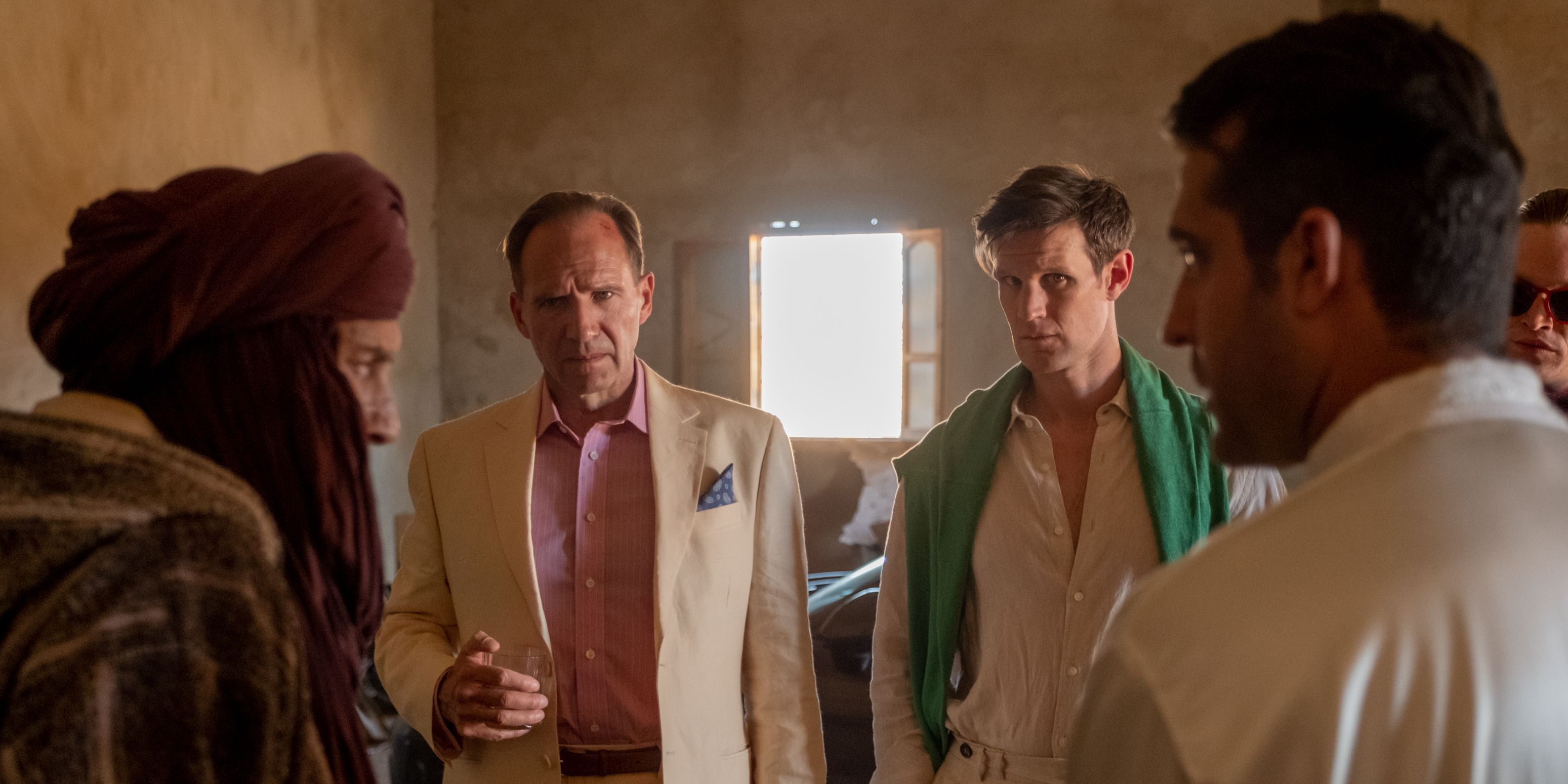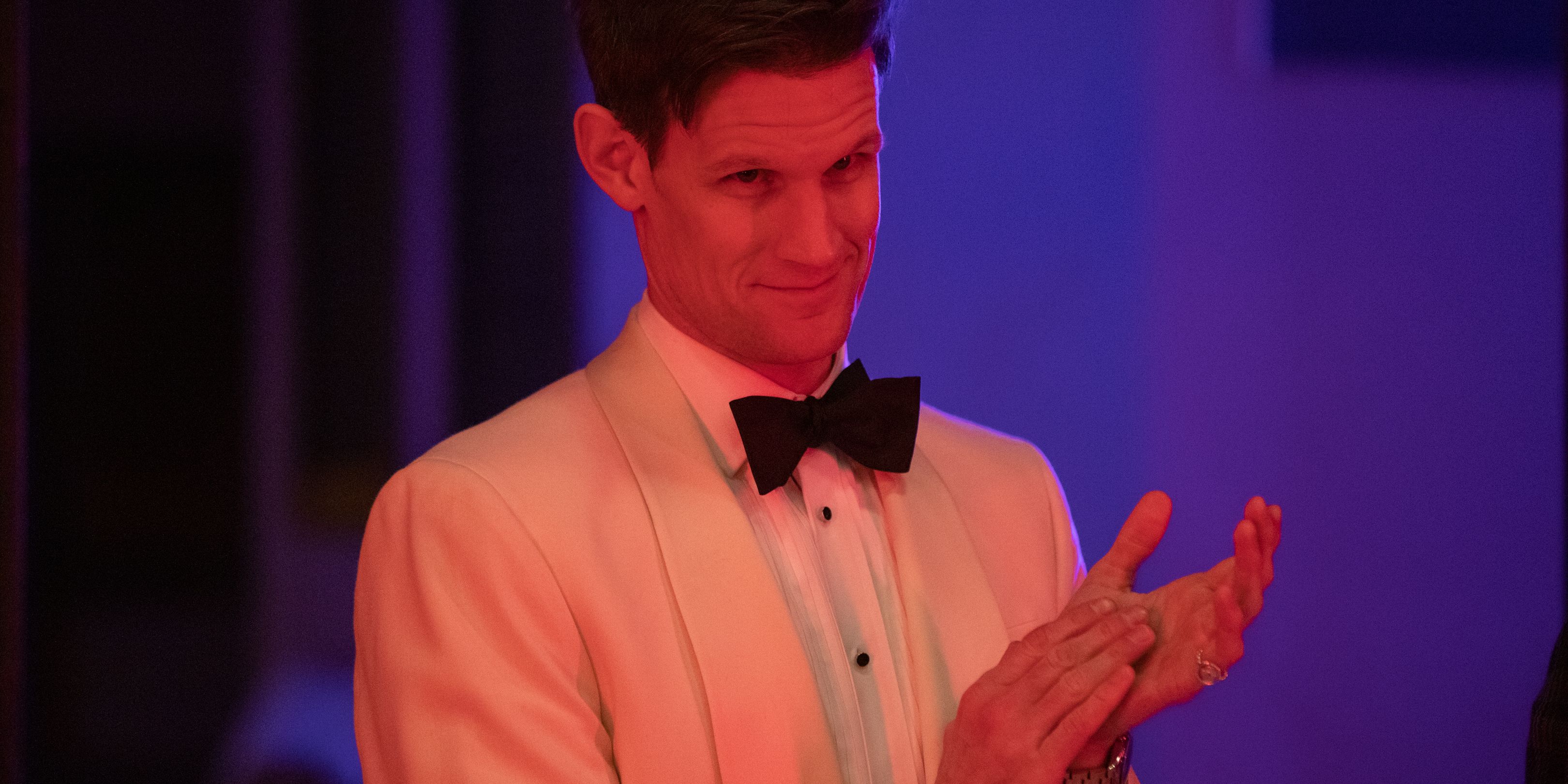The Forgiven is a thematically ambitious film, something that plays in its favor while watching and becomes a point of criticism in retrospect. It positions its characters as sitting on a number of axes of difference — gender, sexuality, nationality, class, religion, age — that can at any point step in and determine how they relate to one another. Power imbalances are problematized, prejudices are aired, and the world is presented as a place defined by jagged edges that refuse to be sanded down. This makes for a compelling backdrop to a tense crime drama narrative that is fueled by gaps of knowledge the movie seems in no hurry to fill. As long as those gaps remain, they give space for small details to echo with meaning, but the impulse to resolve the story by its end diminishes its opportunity for impact. Given some time to think on it later, viewers might have trouble pinning down what it actually had to say about all those thorny subjects it seemed to be about.
Writer-director John Michael McDonagh's The Forgiven opens with two story strands that collide to leave the mess that ends up defining the film. In the first, wealthy couple David (Ralph Fiennes) and Jo (Jessica Chastain) travel through Morocco on their way to a weekend-long party hosted by friends Richard (Matt Smith) and Dally (Caleb Landry Jones). They bicker and drink, and end up having to drive through a barely marked desert road at night. In the second, two young Moroccan men, disillusioned with their lives digging for fossils to sell, determine to take more drastic action against the rich foreigners they know are convening at the noted gay couple's estate. In talking his friend into whatever they've planned, one of them flashes a revolver. David and Jo, lost, impaired, and arguing, hit one of the teens with their car when he runs into the road. They arrive at their destination, party in full swing, with his unidentified corpse in the backseat.
The immediate aftermath then reintroduces a bifurcated structure. Richard's attempt to resolve what David claims was an accident through his local police connections is interrupted when the boy's father, Abdellah (Ismael Kanater), unexpectedly arrives to claim the body. His son's name was Driss (Omar Ghazaoui), and honor demands that David accompany him to their village for a proper burial. David, when informed by Richard that he has no preferable alternative, agrees to go despite reservations that they might have more than spiritual and financial restitution in mind. The movie follows both David's journey and Jo's time at the party, particularly her exchanges with Tom (Christopher Abbott), a fellow American who presents a sharp contrast to her cynical British husband. The David strand is alternately tense and touching, a grieving process tinted by the audience's uncertainty over everyone's true intentions, with the threat of physical violence always just on the horizon. Jo's, meanwhile, is a La dolce vita-esque portrait of the aimless upper class at play, complicated by their relationships to the Moroccan servants that seethe beneath their smiles.
The Forgiven is a movie that thrives on detail, and unfortunately, not everything interesting about it can be unpacked here. There are small creative choices that, on their own, speak volumes, such as Richard's nickname Dickie, which (in the context of Smith's charming performance) brings to mind The Talented Mr. Ripley's patron saint of the idle rich Dickie Greenleaf. Small performance moments accomplish the same, ranging from Chastain's Jo briefly lashing out after a perceived slight from the staff bringing her breakfast to the way Fiennes' David downs a certain beer at a pivotal point in his journey. The way McDonagh's script withholds the truth of what happened that night on the road, while signaling to the audience that it's doing so, encourages viewers to notice these details, and the time spent interpreting them is stimulating.
By the end, however, The Forgiven becomes too caught up in the bigger picture, and the intriguing puzzle pieces don't shine quite as much when all put together. Jo's storyline may strike viewers as lacking in impact, and while this is part of the point of the foreigners' oasis, attempting to give her a growth arc anyway feels somewhat perfunctory. David's, meanwhile, seems too transformative, overly simplistic in a way that betrays the nuances in every other part of his journey. A good point of comparison here might be Maggie Gyllenhaal's The Lost Daughter, which also feels particularly literary in its allusiveness and ambiguity, but is far more successful at carrying that through to the end. It's the wish of this critic that The Forgiven had ended with the aforementioned beer, but as it is, the movie's coda does the rest of it a disservice.
The Forgiven releases in theaters on Friday, July 1. The film is 117 minutes long and is rated R for language throughout, drug use, some sexual content and brief violence.



